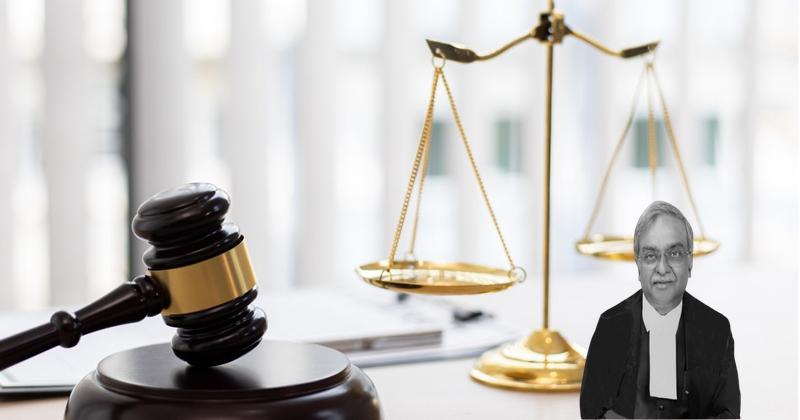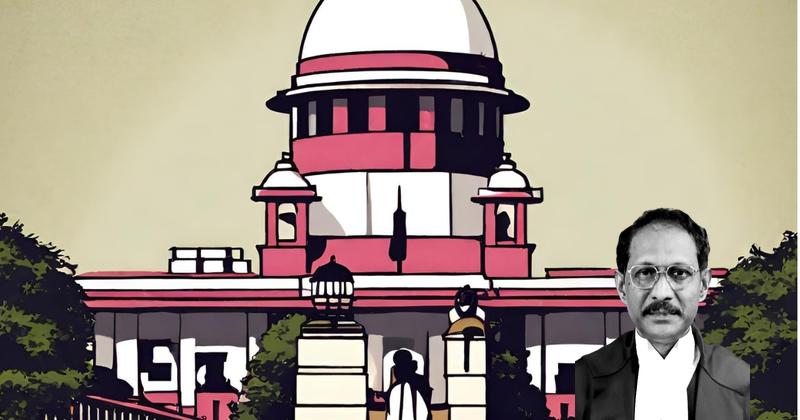Explore the intricate legal analysis conducted by the High Court regarding jurisdiction and the surrender of tenancy rights in a recent case. The court delved into the nuances of property rights, family business operations, and the validity of surrender documents. This blog sheds light on the court’s detailed examination of legal principles surrounding joint family businesses and the authority to surrender tenancy rights.
Facts
- The cause of action arose on 21.3.1996 when the plaintiff’s grandfather, along with others, broke the lock of the suit premises and removed belongings.
- The plaintiff filed a suit for declaration as a tenant in the suit premises and entitled to continue on payment of rent.
- Disputes over management led to the closure of the hotel for several years.
- Defendant No. 1 surrendered the shop premises on 31.5.1996 due to old age.
- The plaintiff’s great grandfather predeceased his brother who was carrying out joint family business in the Wakf Board premises.
- The possession of the hotel business was handed over to the plaintiff’s grandfather.
- Defendant No. 1 was running a hotel business and later surrendered the shop to the Mutawalli.
- The High Court allowed a writ petition stating that the induction of the appellant as a tenant by the Wakf Board was illegal.
- The plaintiff communicated with the Wakf Board to continue the hereditary tenancy in his name.
- An order was issued to dispossess the appellant from the suit premises and hand over vacant possession to the plaintiff.
- Plaintiff did not suggest that Devendra Prasad was managing a joint family business
- Difficult to believe Devendra Prasad was managing a joint family business without suggestion
- Suit dismissed due to lack of evidence of joint family business management by Devendra Prasad
Also Read: Supreme Court Judgment on Single Till Mechanism for HRAB Calculation: A Comprehensive Analysis
Arguments
- Appellant’s counsel argues that the High Court could not reappreciate facts in a petition under Article 227 of the Constitution.
- Counsel contends that there was no estoppel against the statute as consent cannot confer jurisdiction upon the Authority which originally did not have jurisdiction.
- The Tribunal allegedly lacked jurisdiction to entertain the suit due to a previous judgment.
- The surrender of possession was argued to be of the tenancy rather than the joint Hindu family business.
- It was argued that even if defendant No 1 was the Karta of the joint Hindu family, he had the right to surrender the tenancy for the family’s benefit.
- Reference was made to various cases to support the appellant’s contentions.
- Mr. Sanyal, representing the plaintiff, argued that the nomenclature of jurisdiction under Article 226 or the proviso to Section 83(9) of the Act was immaterial as it was still the High Court’s jurisdiction.
- The application of the personal law of Hindus regarding joint Hindu family property to tenanted property was highlighted.
- The possession was said to have been delivered to the appellant due to an illegal surrender of tenancy rights, justifying the High Court’s order.
- It was argued that interference in tenancy matters is not permitted in petitions under Article 226 or 227 of the Constitution.
- The plaintiff’s right to the tenancy was emphasized, stating that it could not be surrendered without the consent of other coparceners.
- The proceedings instituted prior to the amendment were to continue as per the unamended provisions of the Act.
- The Tribunal’s decision was considered to be without jurisdiction.
- The Wakf Tribunal could not grant the declaration as claimed by the plaintiff, as per the Ramesh Gobindram case.
- Objection regarding jurisdiction cannot be raised by the Wakf Board or the appellant at this stage.
- Reference was made to the case of Commissioner of Income Tax, Madhya Pradesh v. Sir Hukamchand Mannalal & Co. regarding contracts with strangers by Hindu Undivided Family members.
- The appellant cannot dispute the issue of the suit being transferred to the Wakf Tribunal at this stage.
- The plaintiff originally invoked the jurisdiction of the Civil Court in 1996.
- The Wakf Board and the appellant later filed an application for the transfer of the suit to the Wakf Tribunal.
Analysis
- The surrender letter order passed by the Civil Court and upheld by the High Court has attained finality inter-parties.
- The executor of the surrender letter admitted its authenticity in the written statement and as a witness.
- Liability to pay monthly rent continued to accrue upon karta – Devendra Prasad Sinha.
- The title of the petition, whether writ or not, is immaterial.
- Discrepancies in translations do not render the surrender letter unreliable.
- Contract of tenancy was inherited and surrendered individually, not as joint family asset.
- Evidence does not support the hotel business being a joint family business.
- Court rulings establish that a member’s business does not automatically become a joint family business.
- Presumption of joint family property does not apply to business activities.
- High Court erred in presuming joint family existence based solely on a ration card.
- Existence of joint family must involve investment or funds from the joint family.
- High Court’s concerns about the reliability of the surrender letter are not sufficient to discard its validity.
- High Court’s role is to examine determinations of the Wakf Tribunal for correctness, legality, or propriety.
- The nomenclature of the petition is immaterial if the nature of the order passed is considered.
- Statutory provision allows for High Court intervention to ensure correctness of tribunal determinations.
- Petition under Article 227 can be treated as one under the Act if required.
- Parties cannot both challenge and accept the jurisdiction of a court in the same matter.
- Disputes over jurisdiction cannot be raised if parties have accepted court orders and gone to trial.
- The Mutawalli also accepted the surrender letter as authentic.
- In Surya Dev Rai, it was held that the order of the Civil court could be challenged in a petition under Article 226 and that the distinction between Articles 226 and 227 of the Constitution of India stood almost obliterated.
- The Court emphasized that a wrong reference to the power under which an action was taken by the Government would not necessarily invalidate the action if it could be justified under another lawful power.
- The Court in Pepsi Foods Ltd. established that the nomenclature under which a petition is filed does not restrict the Court from exercising its jurisdiction if it otherwise possesses the authority to do so.
- The Allahabad High Court, in Ram Awalamb, clarified that personal laws like Hindu or Mohamedan law cannot be imposed on rights created by the U.P. Zamindari Abolition and Land Reforms Act.
- The powers of the Karta of a Joint Hindu Family have been elucidated, outlining their authority in various matters as per Hindu Law by Mulla.
- A judgment in Sadhana Lodh highlighted that a Writ Petition may not be maintainable if an alternative remedy is provided under a statute, focusing on the availability of the writ jurisdiction in such cases.
- In Municipal Corporation of the City of Ahmedabad v. Ben Hiraben Manilal, the question was raised regarding the joint family business, the act of surrender of possession, and the interests of the joint Hindu family.
- Disputes arose over the management and income of a property leading to its closure, which was addressed in the case of Radhey Shyam.
- The court discussed the issue of a manager of a joint family entering into a partnership and its implication on other family members, referencing the judgment in P.K.P.S. Pichappa Chettiar & Ors. v. Chockalingam Pillai & Ors.
- The surrender of tenancy was contested on the grounds of lack of consent of other co-parceners, and the argument about a member of an HUF entering into a contract with a stranger was examined in Sir Hukamchand Mannalal & Co. case.
- The High Court’s order was deemed unsustainable based on the reasons provided
- The document in question was proven to be valid and accepted by the Wakf Board
- The act of surrendering the tenancy was deemed beneficial for the Joint Hindu family
Also Read: Selection and Appointment of Judicial Officers in Himachal Pradesh
Decision
- The High Court’s order has been set aside
- The order of the Wakf Tribunal is restored
- No order as to costs in this case
- The present appeal is allowed
Case Title: KIRAN DEVI Vs. BIHAR STATE SUNNI WAKF BOARD (2021 INSC 224)
Case Number: C.A. No.-006149-006149 / 2015



